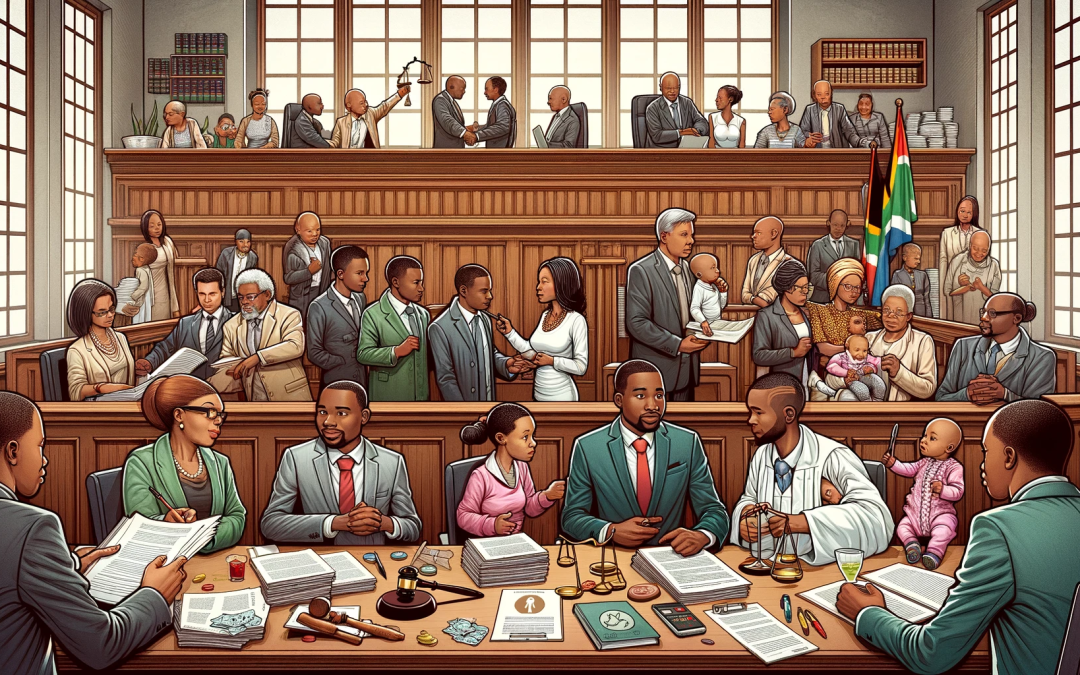Forfeiture of patrimonial benefits is legislated by Section 9(1) of the Divorce Act 70 of 1979 (herein after “the Act”). Section 9(1) of the Act states:
“(1) When a decree of divorce is granted on the ground of the irretrievable break-down of marriage the court may make an order that the patrimonial benefits of the marriage be forfeited by one party in favour of the other, either wholly or in part, if the court, having regard to the duration of the marriage, the circumstances which gave rise to the break-down thereof and any substantial misconduct on the part of either of the parties, is satisfied that, if the order for forfeiture is not made, the one party will in relation to the other be unduly benefited.”
In terms of the Act the courts should grant a forfeiture order in circumstances where, if the order is not granted, one party will be unduly benefited in relation to the other party. Courts have to consider three factors before granting a forfeiture order:
· The duration of the marriage;
· The circumstances which gave rise to the breakdown thereof;
· and any substantial misconduct on the part of either of the parties.
In terms of common law, a marriage was to last a life time, unless one of the parties dies or commits adultery, therefore divorce was seen as an abomination. This gave rise to the divorce being decided on the guilty party principle, meaning that the guilty spouse should not be allowed to benefit from his or her wrong doing. If one party committed adultery or any form of misconduct which led to the marriage to break down, he or she forfeit the patrimonial benefits, meaning that he or she will walk away from the marriage with very little or nothing at all, including that which the party brought to the marriage (see Mulder v Mulder (1885-1888) 2 SAR TS 238).
Our courts have done away with the guilty party principle as a ground for divorce; however misconduct still plays a huge role in courts granting patrimonial benefits forfeiture. Courts now grant forfeiture where the marriage has irretrievably broken down. It does not really matter as to who is to blame for the marriage to break down, this is because of the logic that in most if not all cases, both parties are to blame for the marriage’s breakdown (see Beaumont v Beaumont 1987 (1) SA 967 (A).
It is not clear as to what is regarded as a long or short marriage duration, each case is decided on a case to case basis. From previous decisions by our courts, it is clear that when the marriage is regarded by a court as of short duration, the court will order forfeiture if it is established that if the order is not made one party will be unduly benefited (see Swanepoel v Swanepoel [1996] 3 All SA 440, Malatji v Malatji (23124/2003) [2005] ZAGPHC 142 (4 Feb 2005).
The Act does not determine what circumstances may be considered by the courts in assessing what led to the breakdown of the marriage. Each case is decided on its own facts, there is no close list.
Misconduct is considered as that one factor which courts attach more weight to, however on its own is not a factor which can bring about a forfeiture order, except where the misconduct is substantial, courts are likely to order forfeiture of matrimonial benefits (see Singh v Singh (1983) (1) SA 781 (C). The alleged misconduct must be so substantial that it led to the breakdown of the marriage.
In the case of Matyila v Matyila 1987 3 SA 230 (WLD) the court held that all three factors in section 9(1) had to be alleged and proven and that there is no indication that the court may have reference to only one such factor, this decision was overruled by the Appellate Division in the case of Wijker v Wijker 1993 4 SA 720 (A), where the court decided that not all three factors need to be present for the forfeiture order to be granted. However, it has been said that based on our court’s decisions, misconduct has been the factor which weighs more than the others. Where there is proof of substantial misconduct leading to the irretrievable breakdown of the marriage, the courts are likely to order forfeiture.
The act does not define nor provide any guidance as to the meaning of undue benefit. Our judiciary have not been able to define or explain the meaning of ‘undue benefit’, despite it being the core of section 9(1).
Let us have a look into the recent case of: KT v MR 2017 (1) SA 97 (GP), where forfeiture of patrimonial benefits was claimed.
Facts:
The parties were married to one another in terms of the customary law, which automatically made their married an in community of property one. Both parties were successful professionals who owned various properties. Because of their employment, the parties would not be at home most of the time to build a ‘normal’ family structure together and sometimes the wife would travel far away from home in pursuit of her work demands. The wife alleged that the husband was having extra marital affairs(s), which affairs the husband denied.
The husband was in a better financial position as compared to that of the wife and had during the course of the marriage acquired some property using his own funds, without any assistance from the wife.
The wife instituted divorce proceedings against the husband, who was of the view that he is entitled to get an order to have his wife forfeit her patrimonial benefits.
It was common cause that the wife would be ‘benefited’ if equal division of the joint estate takes place. This was due to the significantly greater contribution made by the husband, as compared to that of the wife. The main issue before the court was whether the benefit was ‘undue’ as per the factors in section 9(1) of the Act.
The court took the meaning of undue benefit as defined by the South African Concise Oxford Dictionary definition of ‘undue’ — ‘unwarranted or inappropriate because excessive or disproportionate’ and held that:
In respect of the duration of the marriage, the court stated that it was a short marriage as the parties were only married to each other for 20 months and a substantial part of the joint estate was built by the husband prior to the marriage commencing.
As to the circumstances giving rise to the breakdown of the marriage, the court found that both parties were at fault as both of them had demanding employments which required them to work late and spend a lot of time being away from the matrimonial home. The court did not put much consideration into the wife’s allegations of the husband having extra marital affairs, which would amount to misconduct.
Accordingly, it was held that the wife would be unduly benefited if an order for forfeiture was not made. However, based on the circumstances, an order of partial, rather than full forfeiture was suitable.
.









